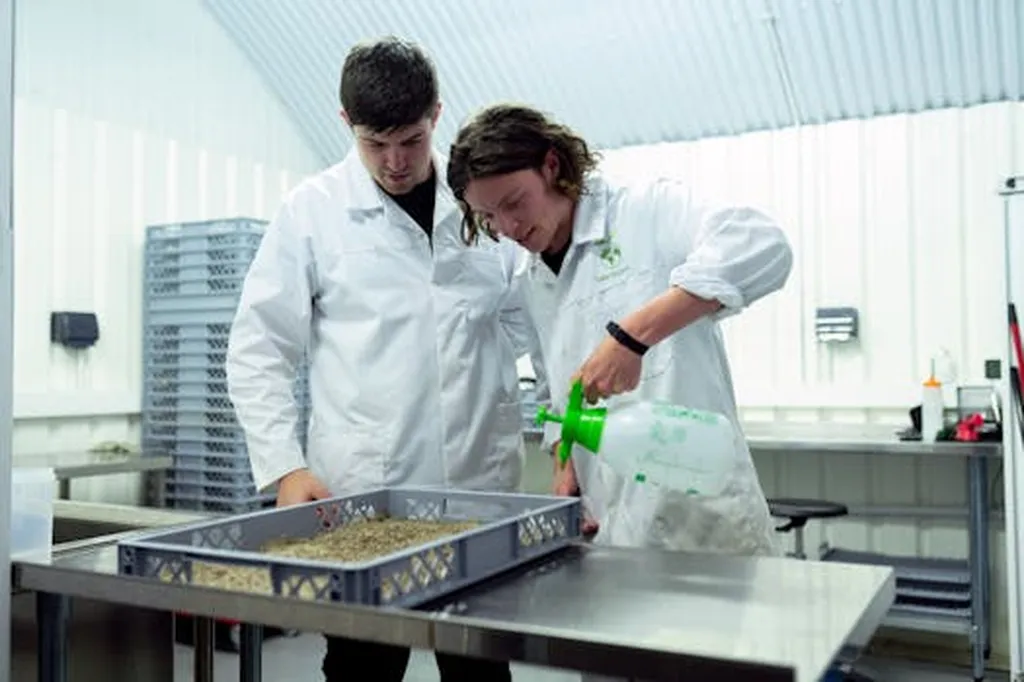In the heart of China, researchers are unlocking the secrets of rice, the world’s most important staple crop, to create climate-resilient varieties that could revolutionize agriculture. Dr. Hangfei Luo, a leading scientist from Guizhou University, has been delving into the intricate world of amino acids (AAs) and their role in rice’s stress tolerance, growth, and quality. His recent review, published in the journal *Rice* (translated to English as “Rice”), synthesizes how AA metabolism can be harnessed to develop high-yield, stress-tolerant rice varieties, with significant implications for the agricultural biotechnology sector.
Amino acids, the building blocks of proteins, play a crucial role in rice’s ability to withstand environmental stresses such as drought, salinity, and extreme temperatures. Luo’s research highlights that under these challenging conditions, rice accumulates specific AAs like proline (Pro), γ-aminobutyric acid (GABA), and branched-chain AAs (BCAAs), which act as osmoprotectants and antioxidants, enhancing the plant’s stress tolerance. “These amino acids are not just nutrients; they are vital for the plant’s survival under stress,” Luo explains.
The study provides compelling genetic evidence that manipulating AA metabolism can enhance rice’s resilience. For instance, overexpressing biosynthetic genes like OsOAT for Pro and OsDIAT for BCAAs, or knocking out catabolic genes like OsProDH, can significantly boost stress tolerance. Moreover, engineering AA transporters, such as the ABA-induced OsANT1, can optimize the redistribution of AAs within the plant, maintaining cellular function under stress.
These insights are not just theoretical; they have practical applications that could transform rice farming. Exogenous treatments with specific AAs like Pro and GABA can mitigate stress damage, while breeding and genetic engineering strategies can develop rice varieties that are not only stress-tolerant but also high-yielding and high-quality. Luo envisions a future where these molecular insights are translated into field applications, addressing the trade-offs between growth, nutrition, and tolerance to enhance climate-resilient rice production.
The commercial implications of this research are substantial. As climate change intensifies, the demand for stress-tolerant, high-yielding crops is growing. Luo’s work could pave the way for new breeding techniques and biotechnological innovations, creating opportunities for agricultural biotechnology companies to develop and market stress-tolerant rice varieties. This could lead to increased crop yields, improved food security, and economic benefits for farmers and the agricultural industry.
Luo’s research is a testament to the power of integrating molecular insights with practical applications. As he puts it, “Understanding the mechanisms of amino acid metabolism in rice is not just about advancing science; it’s about making a tangible difference in agriculture and food security.” With the publication of this review in *Rice*, the journal of the Rice Technical Working Group, the scientific community is one step closer to realizing this vision. The future of rice farming is looking greener, one amino acid at a time.

